GOV'T CONSIDERS REDUCING QUARANTINE PERIOD
입력 2022.04.06 (15:02)
수정 2022.04.06 (16:45)
읽어주기 기능은 크롬기반의
브라우저에서만 사용하실 수 있습니다.
[Anchor Lead]
Daily COVID-19 infections have been declining in the past 2 weeks. The reproduction index referring to the number of infections caused by a single patient has dipped below one for the first time in 11 weeks. Amid overseas precedents of shorter quarantine periods, health authorities in Korea are also considering further reducing the period.
[Pkg]
South Korea reported 286,294 new COVID-19 cases on Wednesday. The tally is up by 20,000 from the previous day but down by 138,000 compared to a week ago. The ratio of daily average infections per 100,000 people is clearly on a downward trend. Three weeks ago, the figure topped 783 per day but it dropped to 680 two weeks ago and then to 592 last week. President Moon Jae-in said the omicron wave has passed its peak and with the caseload falling, there are greater expectations for returning to normal life.
[Soundbite] Moon Jae-in(President) : "The international community also views South Korea as a leading country in treating COVID-19 as an endemic and is looking to its strategies on returning to normalcy."
In view of a gradual return to normalcy, the government reviews reducing quarantine period for people recovering from the virus at home. Currently, those who tested positive must isolate for 7 days. Authorities are considering a shorter period given that a 5-day quarantine is implemented in some countries. As of Wednesday, there were some 1.34 million 4 thousand at-home patients, of which about 129,000 including seniors were being monitored. But others voice concerns over a shorter isolation time, citing studies that show the omicron virus may remain contagious for up to eight days.
[Soundbite] Prof. Chun Byung-chul(Korea Univ.) : "The gov’t did not present evidence on the transmission risks when the isolation time is cut to 5 days. The plan just sounds like officials wanting to ease their workload burden."
From Wednesday, the government will supply more COVID-19 oral medication to nursing homes and mental hospitals. The pills will be delivered to 258 public health centers and be supplied to senior care facilities. The fixed price of 6,000 won for self-test kits implemented since February has now been lifted. However the ban on selling kits online will remain until April 30.
Daily COVID-19 infections have been declining in the past 2 weeks. The reproduction index referring to the number of infections caused by a single patient has dipped below one for the first time in 11 weeks. Amid overseas precedents of shorter quarantine periods, health authorities in Korea are also considering further reducing the period.
[Pkg]
South Korea reported 286,294 new COVID-19 cases on Wednesday. The tally is up by 20,000 from the previous day but down by 138,000 compared to a week ago. The ratio of daily average infections per 100,000 people is clearly on a downward trend. Three weeks ago, the figure topped 783 per day but it dropped to 680 two weeks ago and then to 592 last week. President Moon Jae-in said the omicron wave has passed its peak and with the caseload falling, there are greater expectations for returning to normal life.
[Soundbite] Moon Jae-in(President) : "The international community also views South Korea as a leading country in treating COVID-19 as an endemic and is looking to its strategies on returning to normalcy."
In view of a gradual return to normalcy, the government reviews reducing quarantine period for people recovering from the virus at home. Currently, those who tested positive must isolate for 7 days. Authorities are considering a shorter period given that a 5-day quarantine is implemented in some countries. As of Wednesday, there were some 1.34 million 4 thousand at-home patients, of which about 129,000 including seniors were being monitored. But others voice concerns over a shorter isolation time, citing studies that show the omicron virus may remain contagious for up to eight days.
[Soundbite] Prof. Chun Byung-chul(Korea Univ.) : "The gov’t did not present evidence on the transmission risks when the isolation time is cut to 5 days. The plan just sounds like officials wanting to ease their workload burden."
From Wednesday, the government will supply more COVID-19 oral medication to nursing homes and mental hospitals. The pills will be delivered to 258 public health centers and be supplied to senior care facilities. The fixed price of 6,000 won for self-test kits implemented since February has now been lifted. However the ban on selling kits online will remain until April 30.
■ 제보하기
▷ 카카오톡 : 'KBS제보' 검색, 채널 추가
▷ 전화 : 02-781-1234, 4444
▷ 이메일 : kbs1234@kbs.co.kr
▷ 유튜브, 네이버, 카카오에서도 KBS뉴스를 구독해주세요!
- GOV'T CONSIDERS REDUCING QUARANTINE PERIOD
-
- 입력 2022-04-06 15:02:00
- 수정2022-04-06 16:45:20
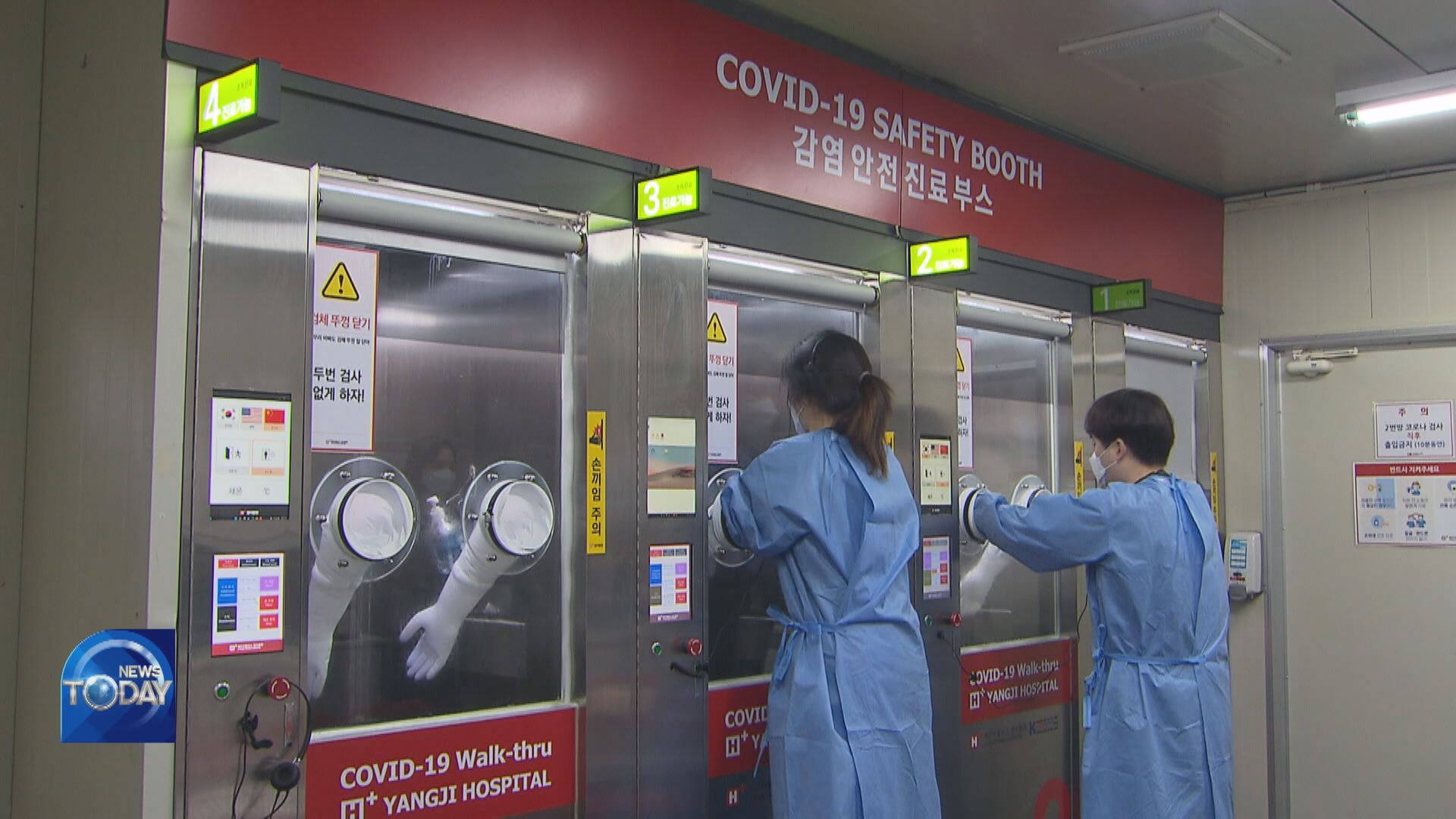
[Anchor Lead]
Daily COVID-19 infections have been declining in the past 2 weeks. The reproduction index referring to the number of infections caused by a single patient has dipped below one for the first time in 11 weeks. Amid overseas precedents of shorter quarantine periods, health authorities in Korea are also considering further reducing the period.
[Pkg]
South Korea reported 286,294 new COVID-19 cases on Wednesday. The tally is up by 20,000 from the previous day but down by 138,000 compared to a week ago. The ratio of daily average infections per 100,000 people is clearly on a downward trend. Three weeks ago, the figure topped 783 per day but it dropped to 680 two weeks ago and then to 592 last week. President Moon Jae-in said the omicron wave has passed its peak and with the caseload falling, there are greater expectations for returning to normal life.
[Soundbite] Moon Jae-in(President) : "The international community also views South Korea as a leading country in treating COVID-19 as an endemic and is looking to its strategies on returning to normalcy."
In view of a gradual return to normalcy, the government reviews reducing quarantine period for people recovering from the virus at home. Currently, those who tested positive must isolate for 7 days. Authorities are considering a shorter period given that a 5-day quarantine is implemented in some countries. As of Wednesday, there were some 1.34 million 4 thousand at-home patients, of which about 129,000 including seniors were being monitored. But others voice concerns over a shorter isolation time, citing studies that show the omicron virus may remain contagious for up to eight days.
[Soundbite] Prof. Chun Byung-chul(Korea Univ.) : "The gov’t did not present evidence on the transmission risks when the isolation time is cut to 5 days. The plan just sounds like officials wanting to ease their workload burden."
From Wednesday, the government will supply more COVID-19 oral medication to nursing homes and mental hospitals. The pills will be delivered to 258 public health centers and be supplied to senior care facilities. The fixed price of 6,000 won for self-test kits implemented since February has now been lifted. However the ban on selling kits online will remain until April 30.
Daily COVID-19 infections have been declining in the past 2 weeks. The reproduction index referring to the number of infections caused by a single patient has dipped below one for the first time in 11 weeks. Amid overseas precedents of shorter quarantine periods, health authorities in Korea are also considering further reducing the period.
[Pkg]
South Korea reported 286,294 new COVID-19 cases on Wednesday. The tally is up by 20,000 from the previous day but down by 138,000 compared to a week ago. The ratio of daily average infections per 100,000 people is clearly on a downward trend. Three weeks ago, the figure topped 783 per day but it dropped to 680 two weeks ago and then to 592 last week. President Moon Jae-in said the omicron wave has passed its peak and with the caseload falling, there are greater expectations for returning to normal life.
[Soundbite] Moon Jae-in(President) : "The international community also views South Korea as a leading country in treating COVID-19 as an endemic and is looking to its strategies on returning to normalcy."
In view of a gradual return to normalcy, the government reviews reducing quarantine period for people recovering from the virus at home. Currently, those who tested positive must isolate for 7 days. Authorities are considering a shorter period given that a 5-day quarantine is implemented in some countries. As of Wednesday, there were some 1.34 million 4 thousand at-home patients, of which about 129,000 including seniors were being monitored. But others voice concerns over a shorter isolation time, citing studies that show the omicron virus may remain contagious for up to eight days.
[Soundbite] Prof. Chun Byung-chul(Korea Univ.) : "The gov’t did not present evidence on the transmission risks when the isolation time is cut to 5 days. The plan just sounds like officials wanting to ease their workload burden."
From Wednesday, the government will supply more COVID-19 oral medication to nursing homes and mental hospitals. The pills will be delivered to 258 public health centers and be supplied to senior care facilities. The fixed price of 6,000 won for self-test kits implemented since February has now been lifted. However the ban on selling kits online will remain until April 30.
이 기사가 좋으셨다면
-
좋아요
0
-
응원해요
0
-
후속 원해요
0










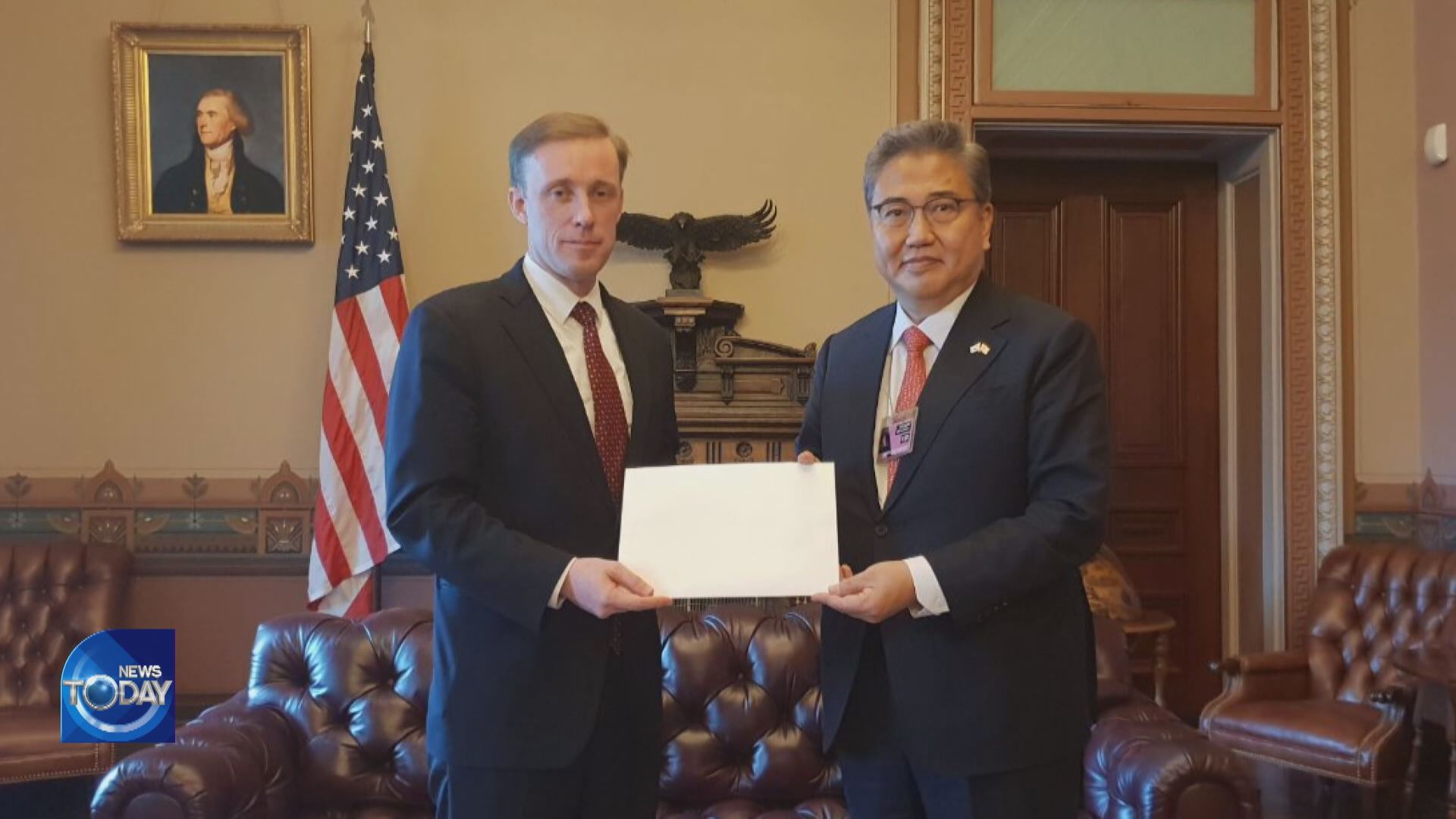
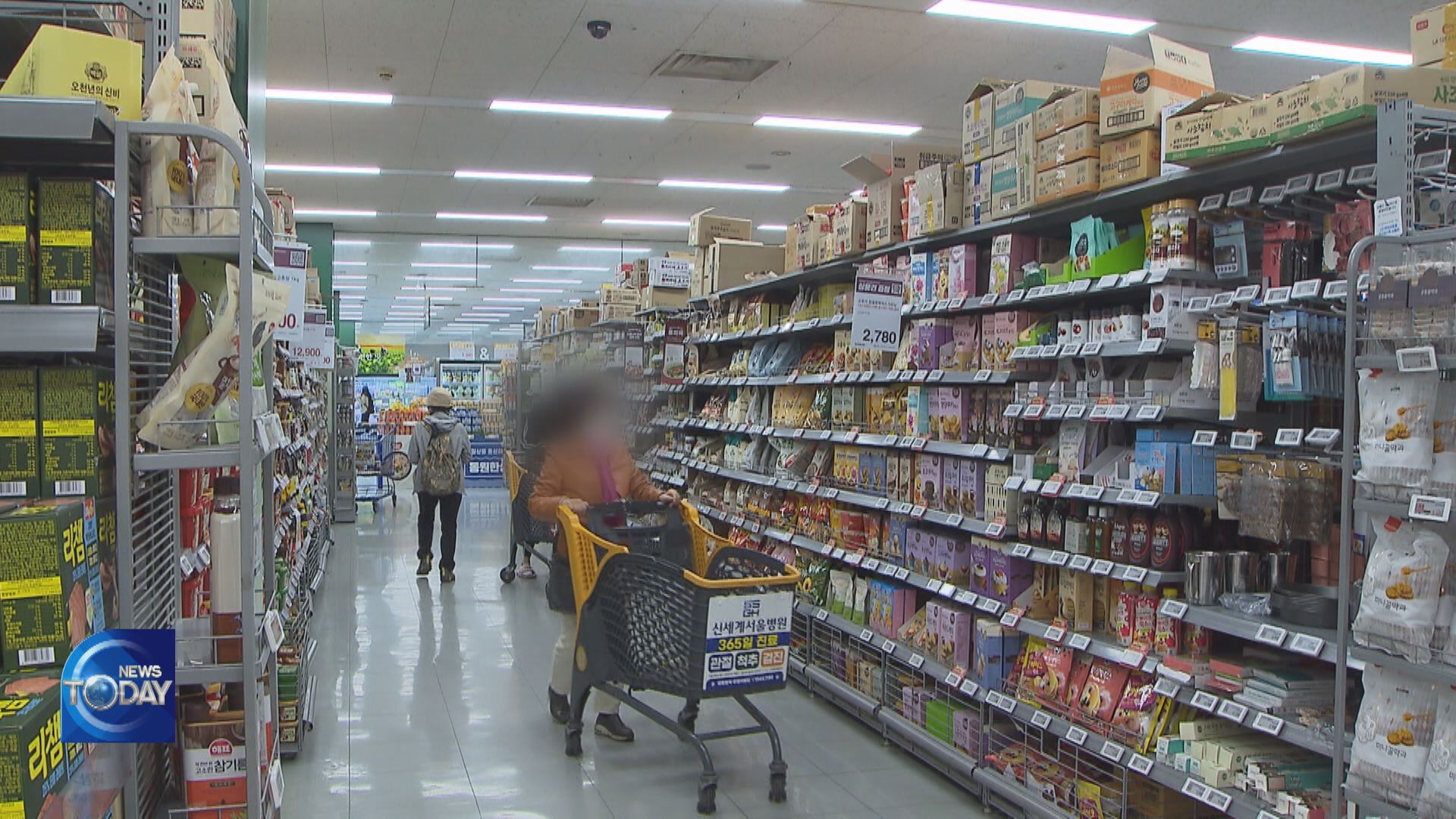
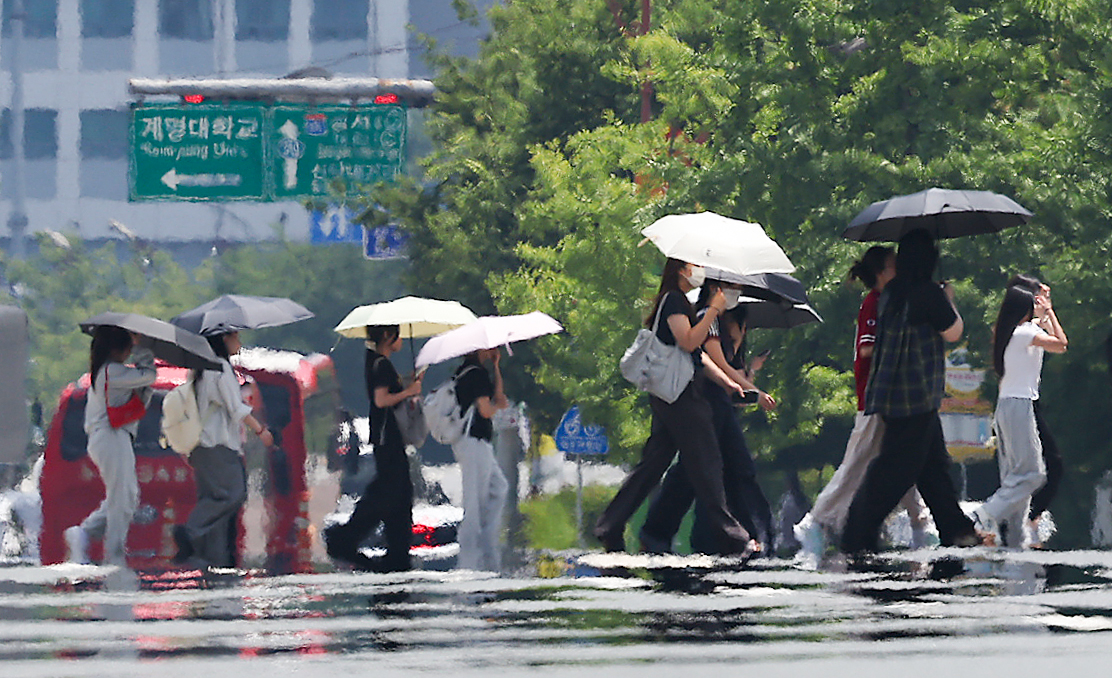
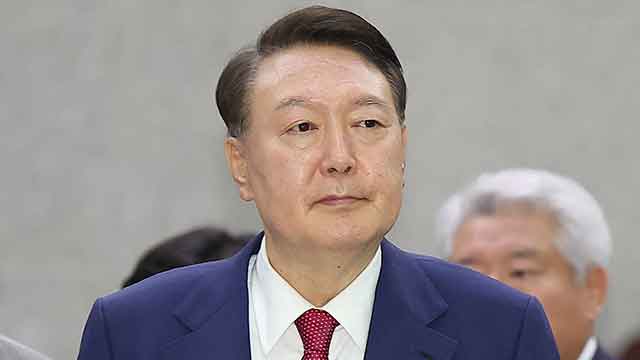
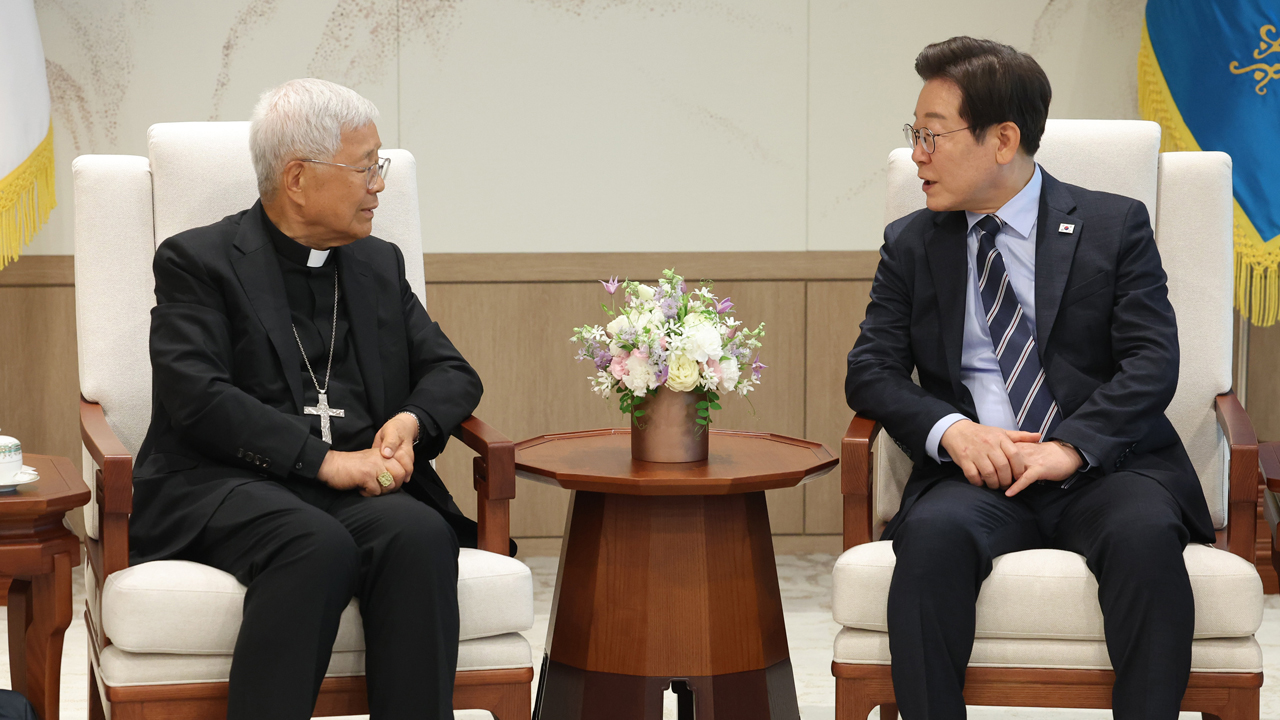


이 기사에 대한 의견을 남겨주세요.